Another post-apocalyptic game, this one is set in a world that has become a frozen wasteland. You take the role of leader as the survivors attempt to rebuild society. In this game your greatest enemy is the environment itself.
When you start a game of Frostpunk, you are thrust into a crater within a frozen wasteland. In the center is a heat generator: the source of civilisation’s survival. Quickly you will realise that heat is just as important, perhaps even more important, than food. Without it people will get sick, slowly freezing to death in the unbearable frost that has consumed the world.
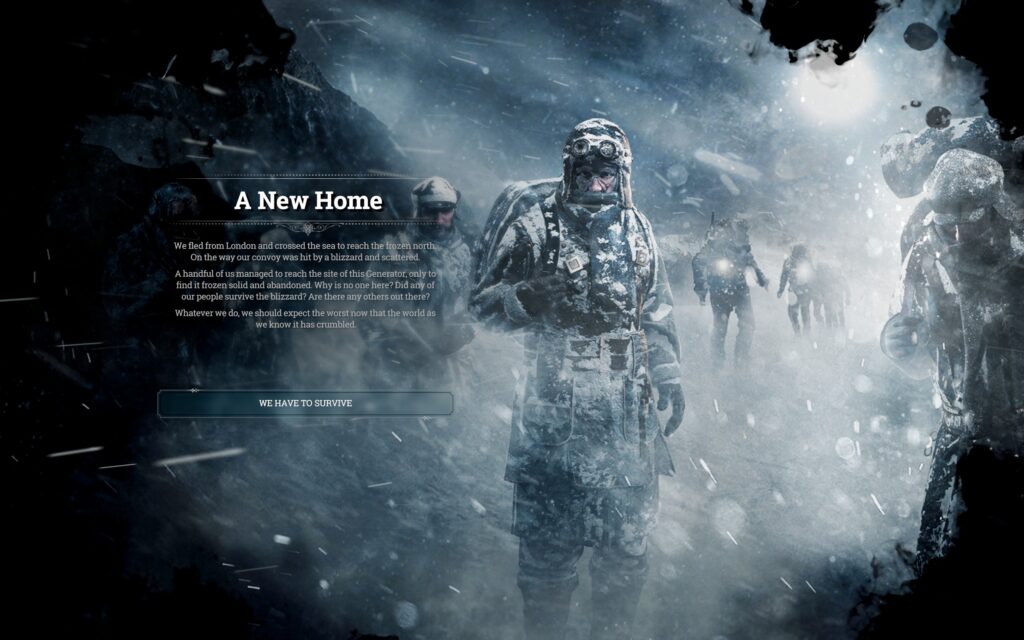
Your task is to lead this civilisation back to, well, civilisation. Initially mere survival is the goal. Ensuring that everyone is fed, warm, and has a roof over their head. Ensuring there are enough doctors to treat the sick. Assigning enough workers to gather the resources needed to maintain the small city of survivors.
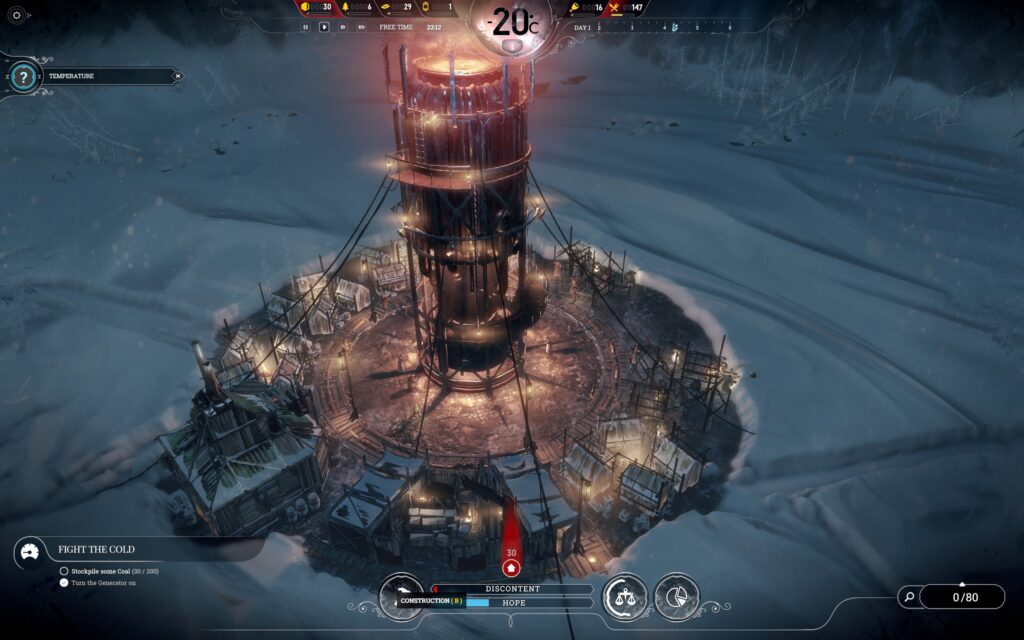
You may find yourself tempted to enact a law enabling child labour. Maybe it is the right choice. Maybe it’s the wrong choice. Immoral, wrong, evil maybe. There’s no way to know for sure. All you can know is you are doing the best you can to help people survive the deathly cold that consumes the Earth.
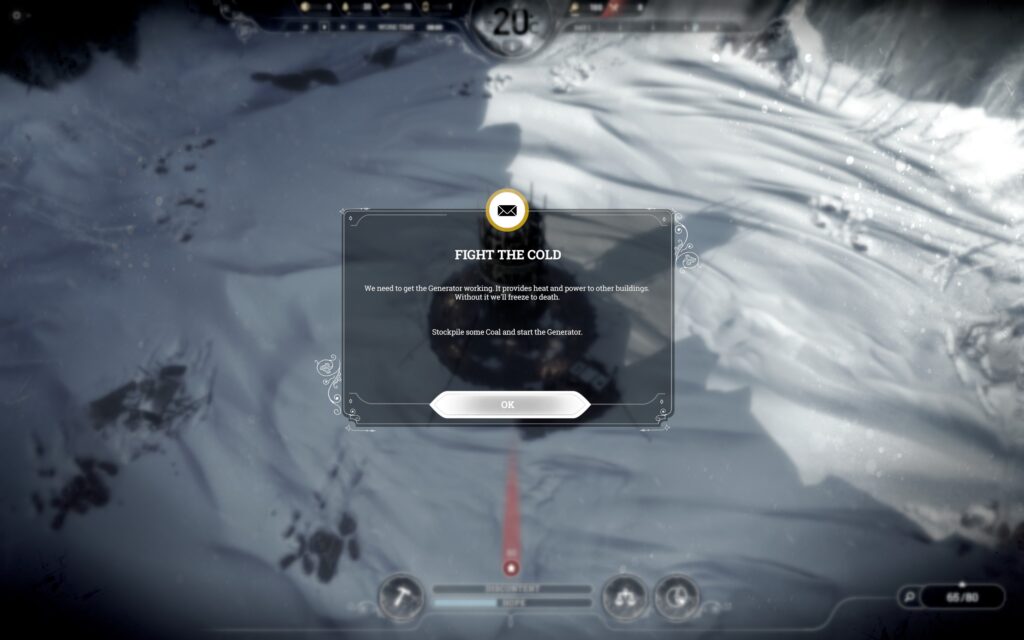
Laws can instruct people on how to survive, but technology is your real weapon against the environment. As you progress you will discover new technologies that will help you gather more food, resources, and generate much needed heat. Technology may have turned the world into a frozen hellscape, but it’s also the only way to bring back society.
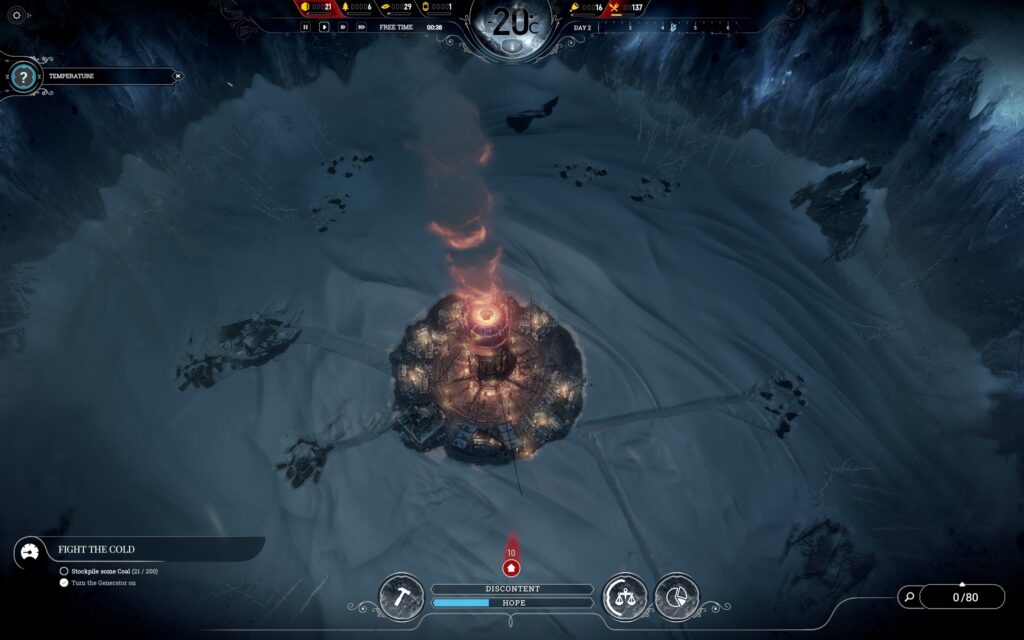
With enough research you can send scouts out to the wasteland outside the city. Here you may find survivors, resources, and technology that can bring hope. But you may also find devastation and destruction that can cause people to lose faith in you as a leader.
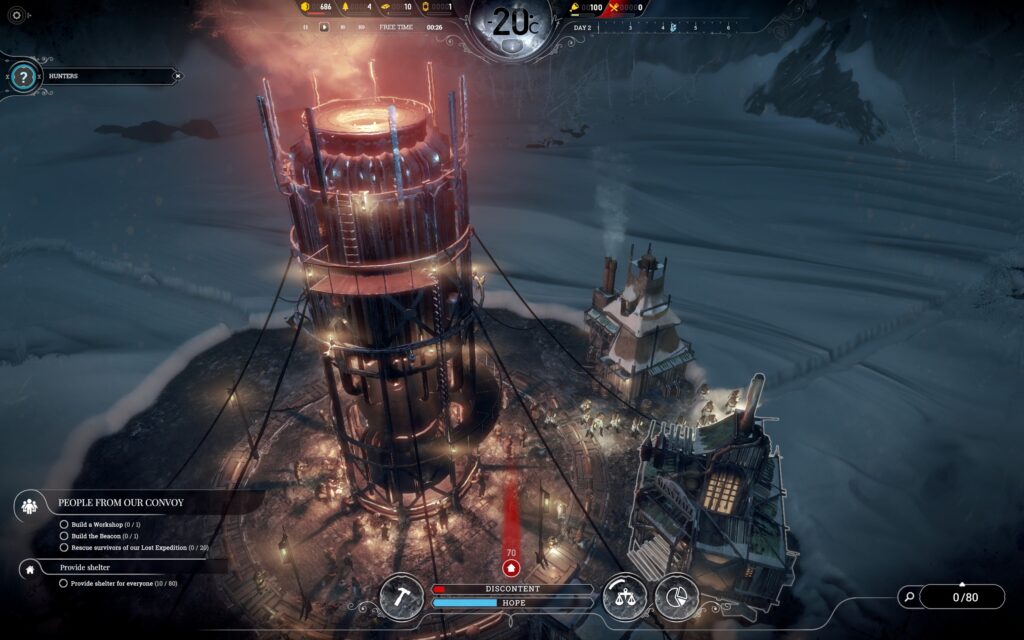
Hope, and discontent, need to be managed by the laws you enact and the structures you build. If people are hungry, sick, or cold, discontent can rise. If they don’t see a future for the society you are trying to build, hope can fall. If discontent is too high people will rebel. If all hope is lost, people will abandon your city.
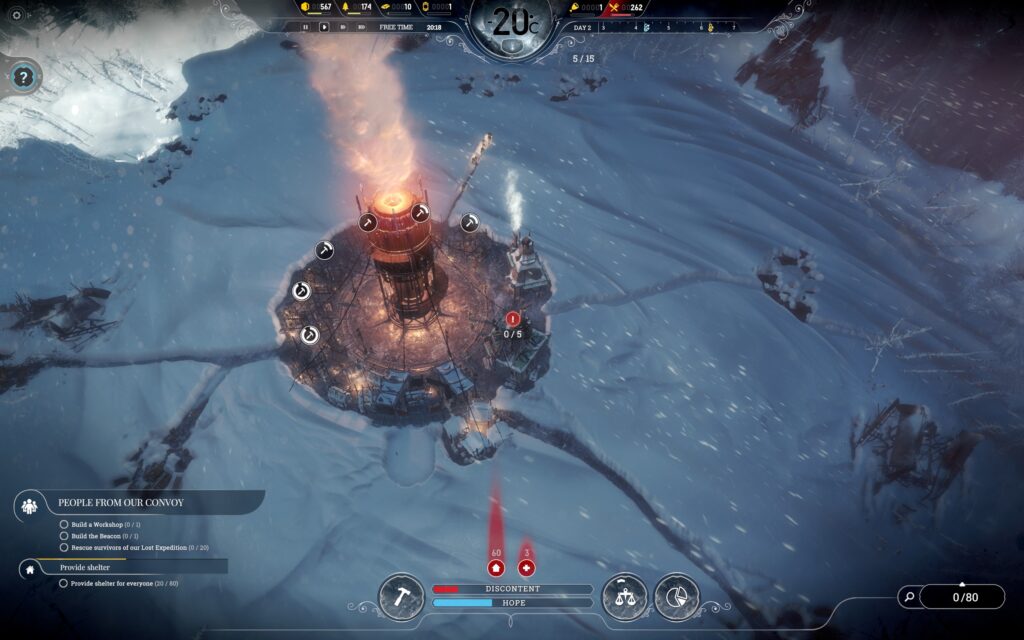
Frostpunk’s city is small enough to make you feel for every citizen. You can zoom in and watch each member of your society, see their goals and health. Frostpunk forces you feel every hungry person, every child that is forced to work, everyone who is too cold. It makes you feel for every individual, it makes you truly care about the survival of the human race and those that will build it.
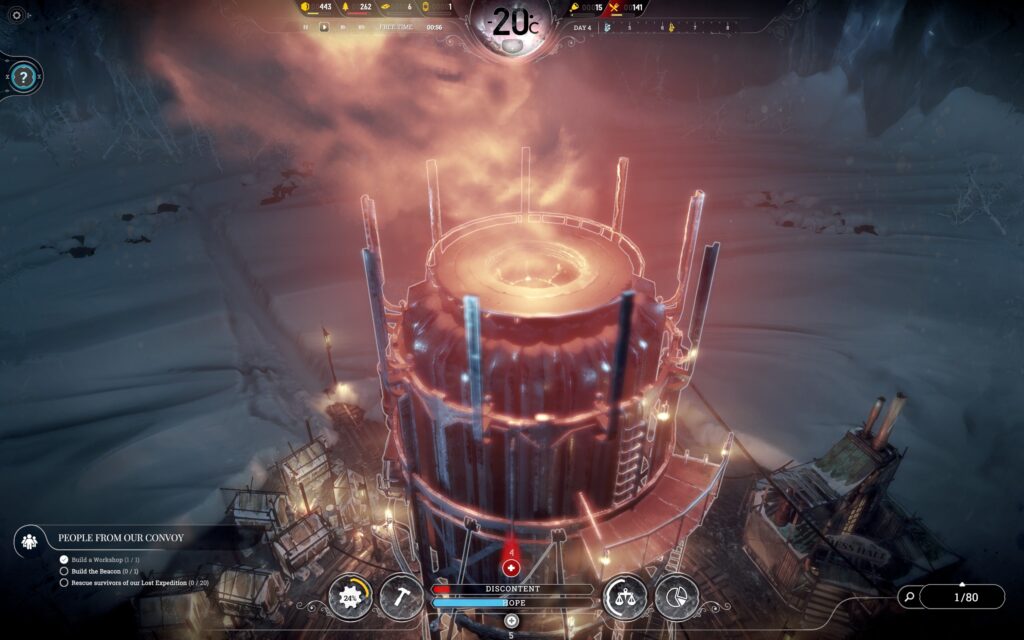
It forces you to make tough choices to enable the city’s survival. Is child labour the right way forward? Should we care for the elderly or let them die so the young have more food? Should we bury the dead or harvest them for organs? Should we rule with an iron fist, or use faith to inspire people?
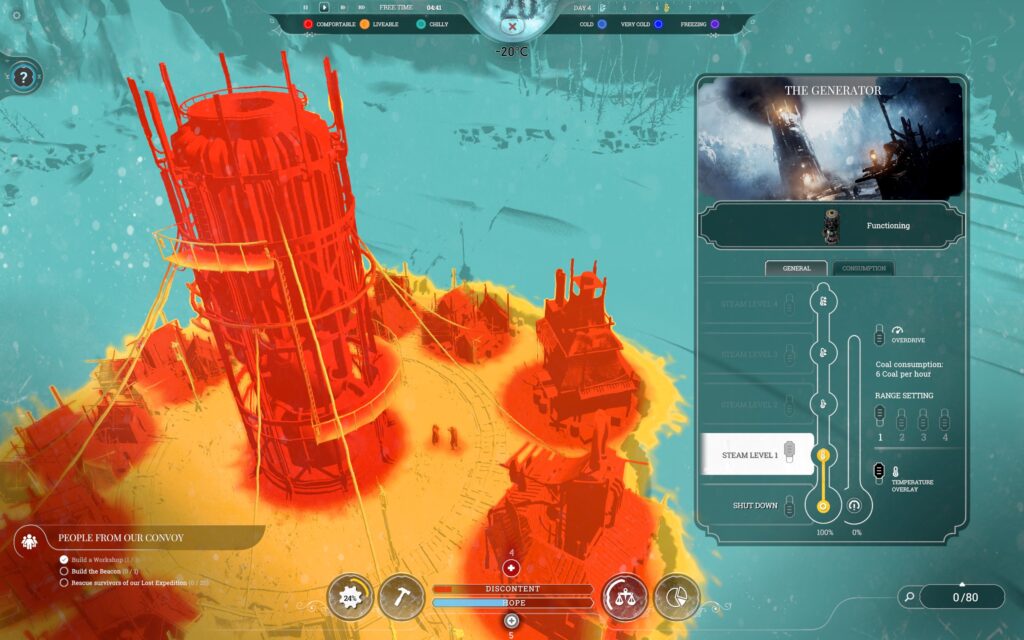
None of these choices are right. None of them are wrong. All that matters, in the end, is survival. If society lives on, then the choice was right. Or was it? Will you always have that nagging feeling that things could have been better if you’d made a different decision?
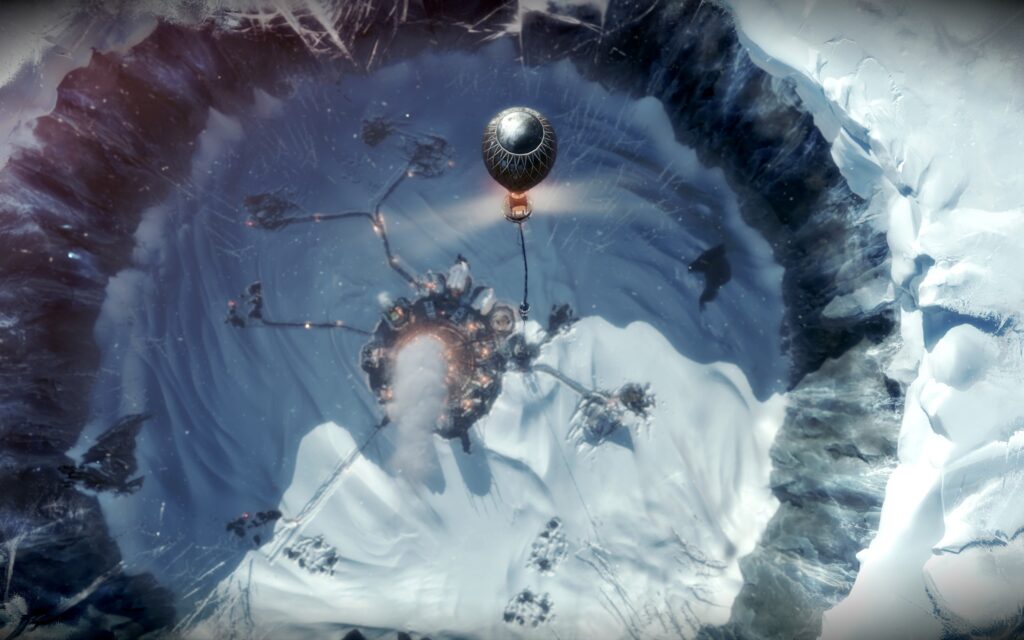
Frostpunk is a damn good game.
Detail
The detail in Frostpunk is astounding. Snow is constantly falling, causing the snow that surrounds the city to rise. As your citizens move through the snow and buildings are constructed, the snow is cleared. Huge automatons leave footprints as they move.
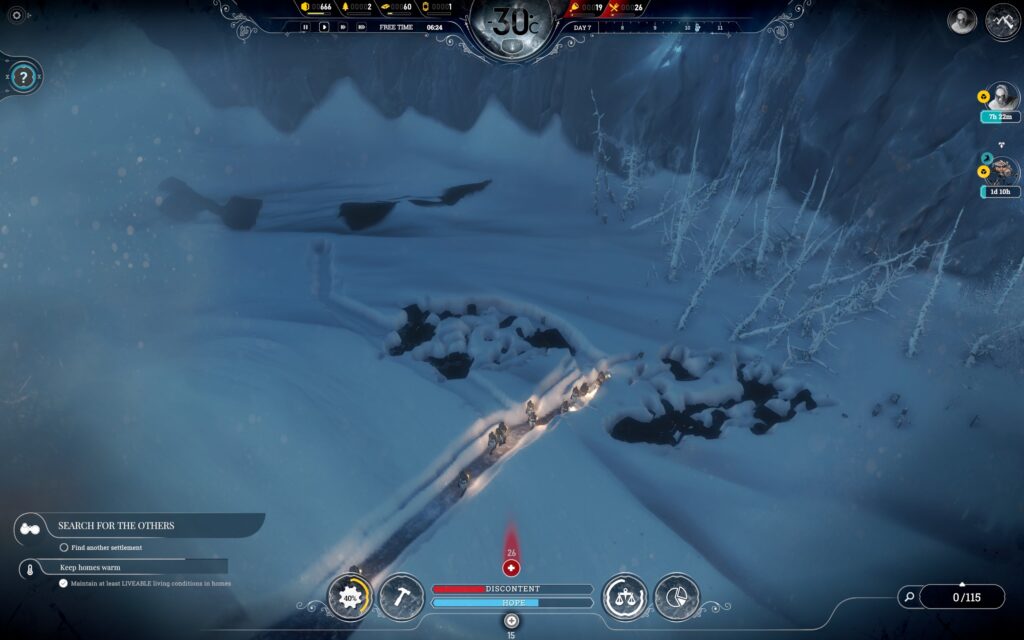
But the snow keeps falling. Paths are covered in snow once again, and buildings lacking warmth will be covered with layers of it. It’s a constant visual reminder of how important heat is to the survival of the human race.
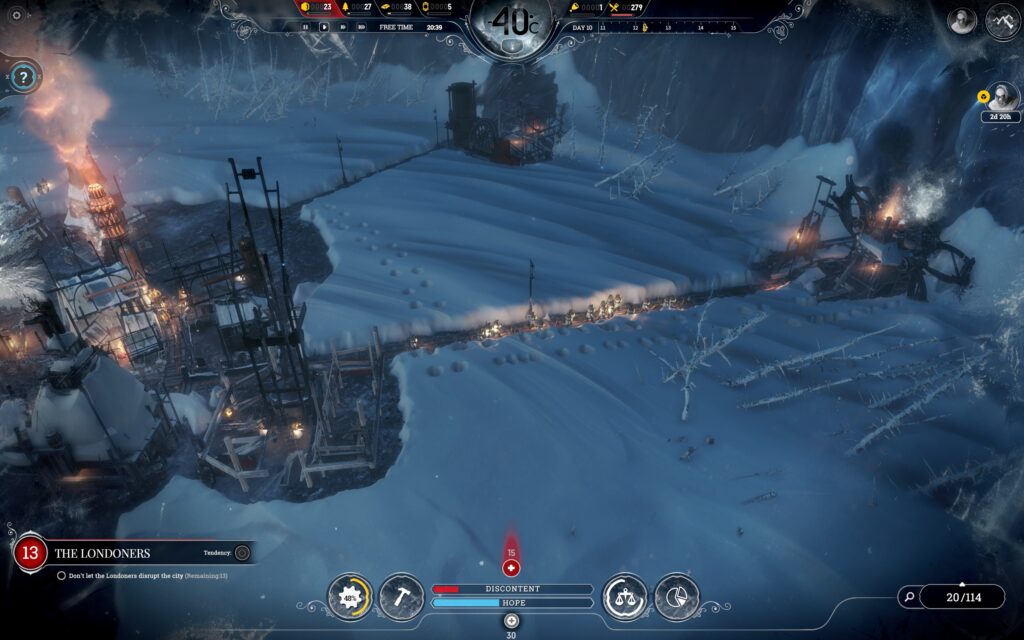
Every individual has their name, their current goal, their job assignment, their greatest concern, their family. Just having a name evokes an emotional reaction, especially when your first citizen dies. It wasn’t a minion, it was a person, with a real name, just trying to help humanity survive.
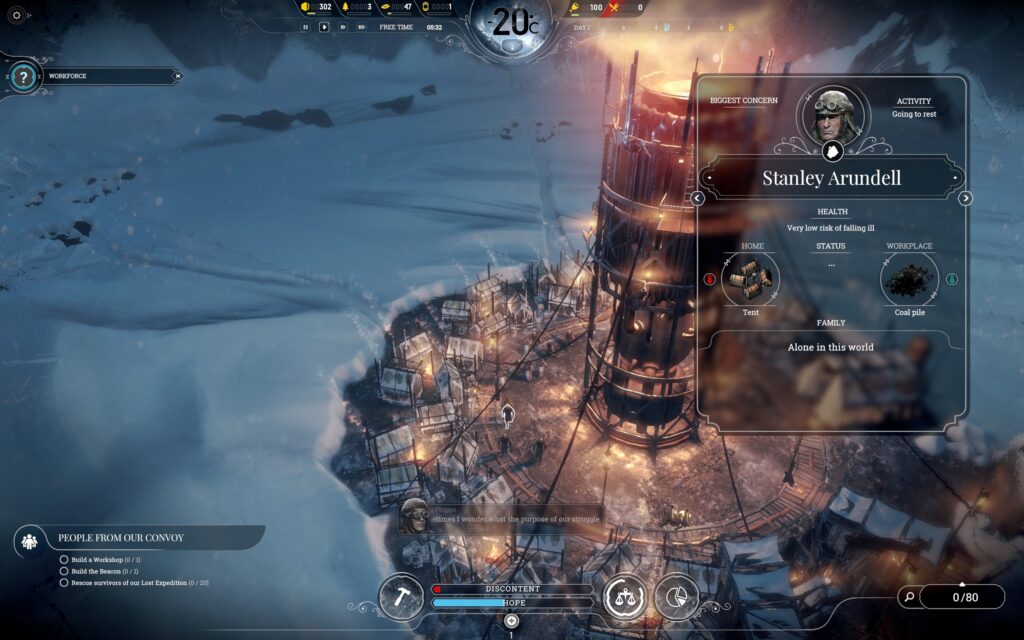
The onset of time and the day/night cycle not only shows the passage of time as shadows move over your city and plunge it into darkness. It is also important to show when your citizens are expected to work, to relax, and to rest. Laws can change these times, allowing you to call for longer shifts when resources need to be gathered faster.
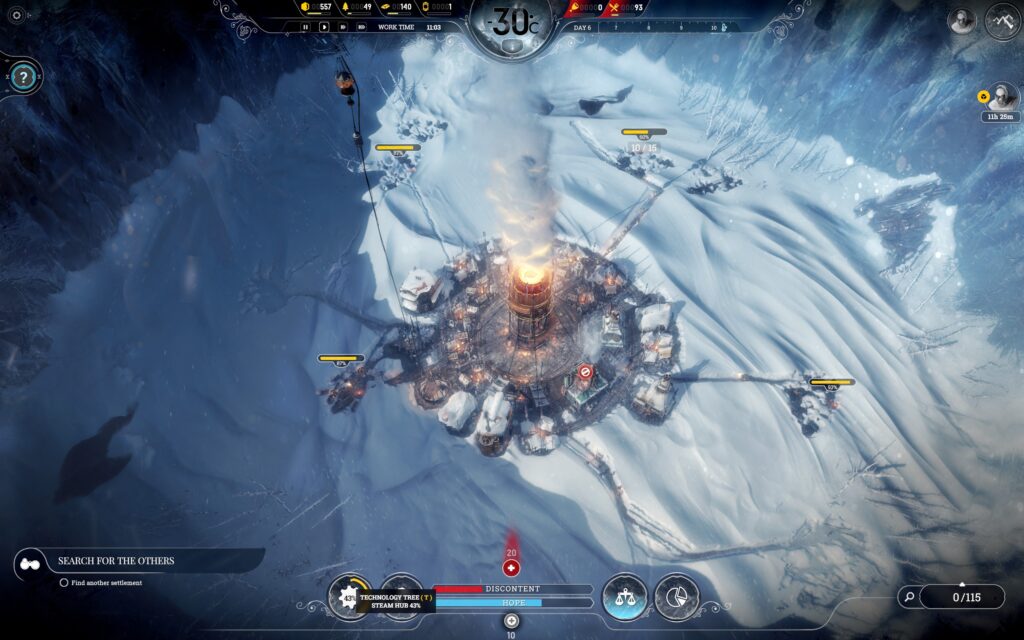
The visual and the mechanical blend together to thrust the gravity of the situation at the player. That the world is nearing death, and that hope for survival is faltering. Death is always a hair’s breadth away, and one wrong decision could lead to a cascade that will end humanity’s very existence.
Failure
My first playthrough of the campaign was a complete disaster. I was learning the ropes, and was a little unclear on some of the mechanics. I had a few setbacks, but I was able to adapt and press on. Unfortunately humanity was not meant to survive this trial.
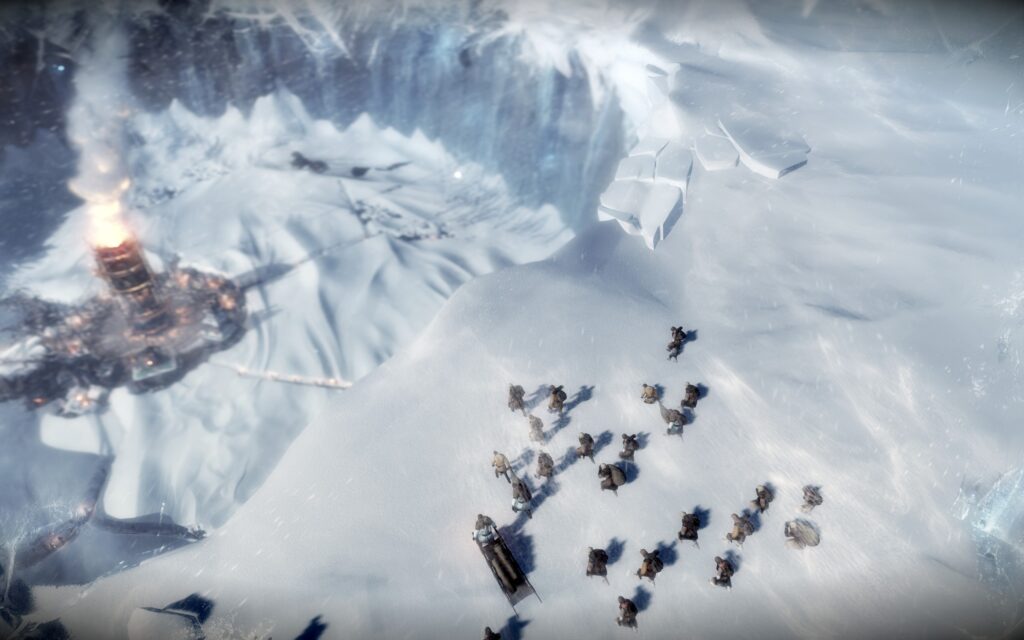
Disaster struck after I built my first Coal Thumper. I didn’t understand the coal piles needed to be collected before it could be burned as fuel. I watched helplessly as the heat generator, the only remaining source of life, shut down. People slowly got sick and started freezing to death.
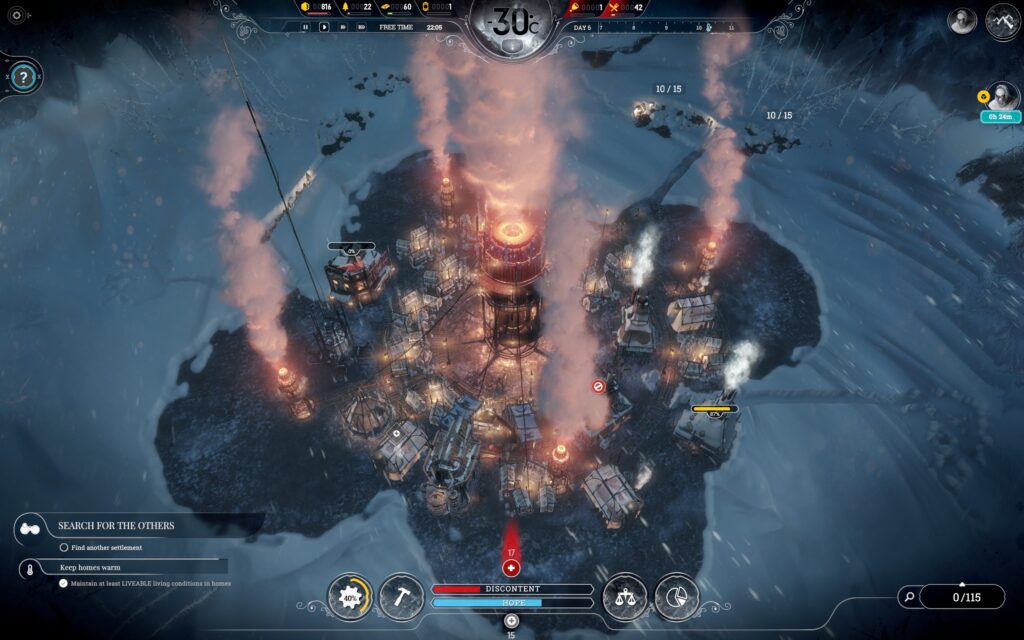
By the time I realised my mistake it was too late to course-correct. Half the population had been killed, and the other half were rapidly falling sick. The medical tents were overwhelmed and couldn’t keep up. I watched as the names of the dying rolled up the screen.
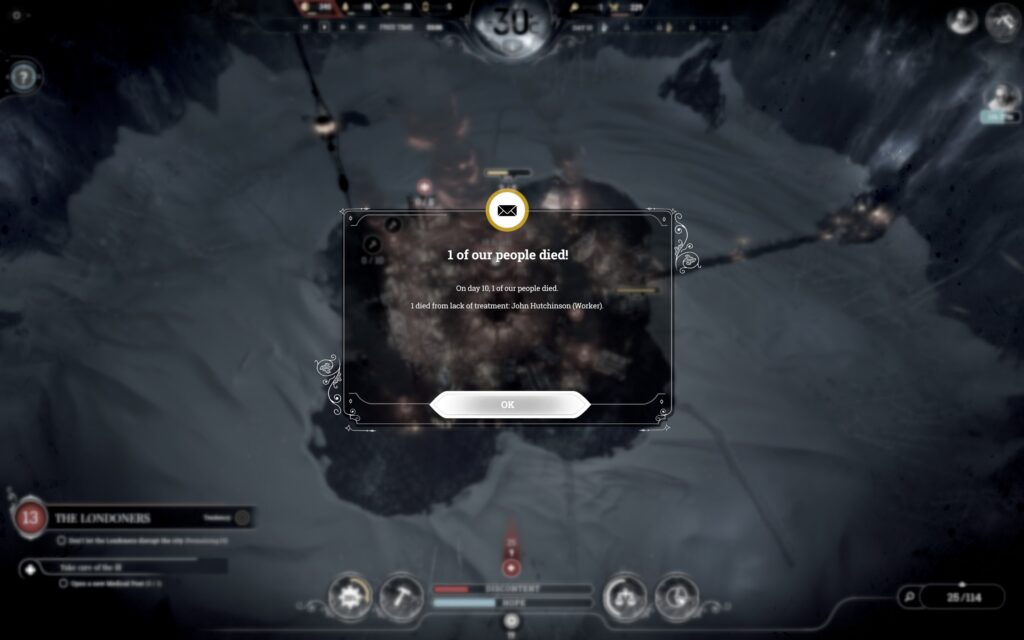
I had failed.
Hope
My second run is doing better. I managed to build up enough coal production to ensure people don’t freeze, have brought law and order to the city and sent expeditions out to gather resources. The expeditions are used to move the plot forward, but this time I was sure to do the optional expeditions first.
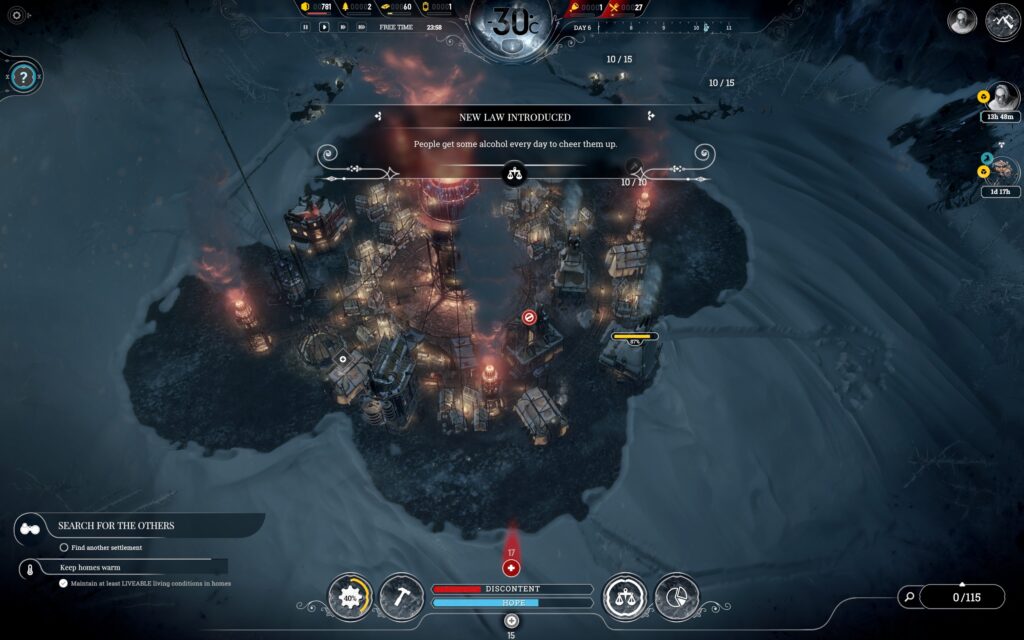
The main goal in the early game is to find another city of survivors. When found the city is empty, everyone has died. Your city loses all hope and you need to build it back up again. Rebel “Londoners” start a movement to leave the city and return to Britain.
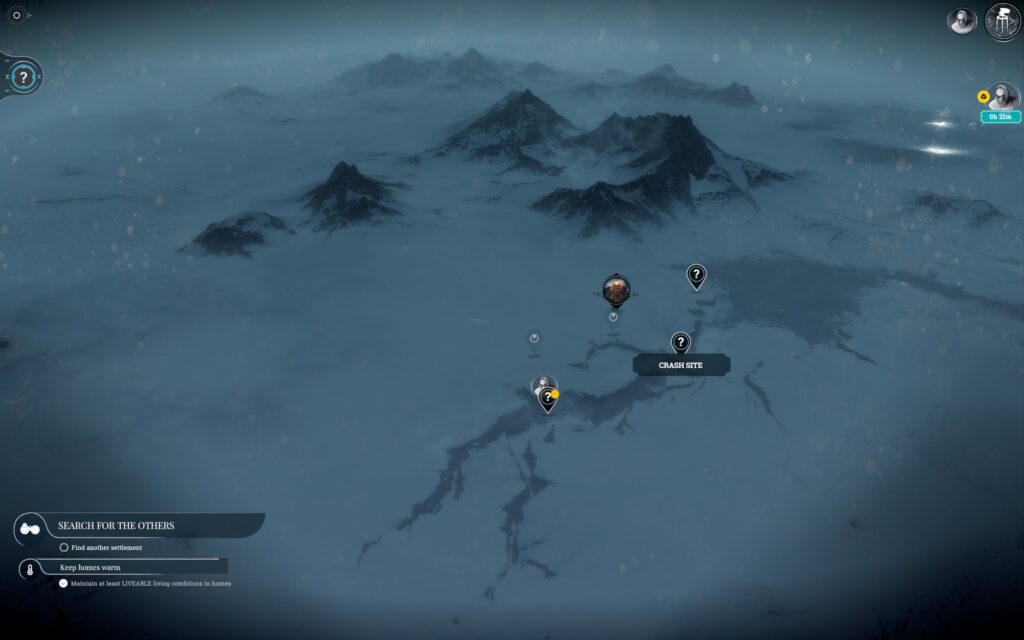
If you don’t do the expedition soon enough then a survivor from the city shows up and dies after reaching us. He tells the people of the other city’s failure and hope is lost as before.
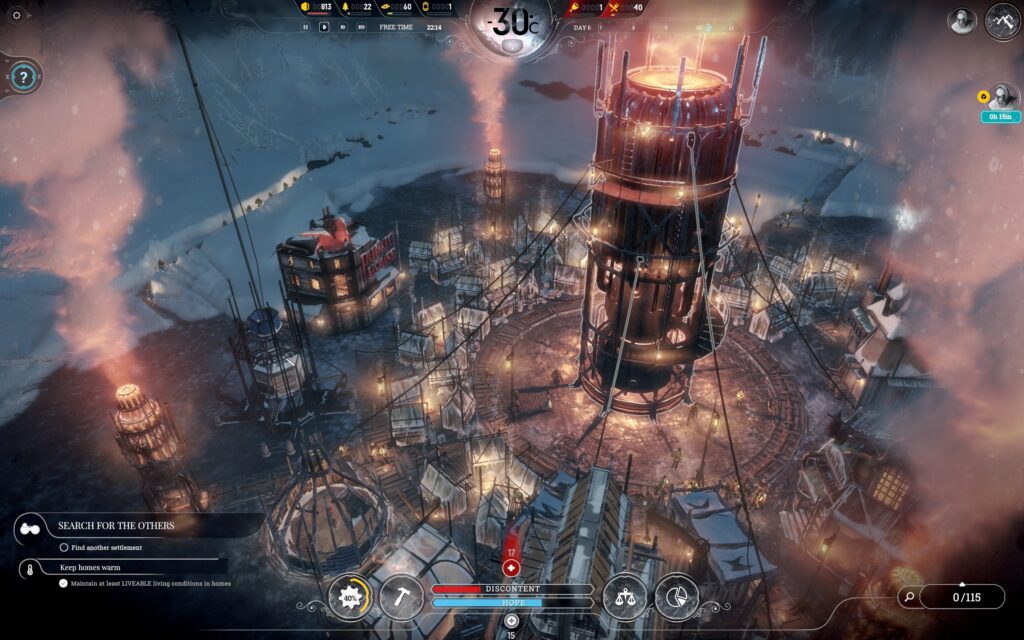
Now I struggle to keep food for all citizens and need to introduce new laws that bring back hope to the city. If the Londoner movement grows too quickly, everyone will leave and the city will be a failure. Perhaps they will survive without the heat generator, but in all likelihood they won’t.
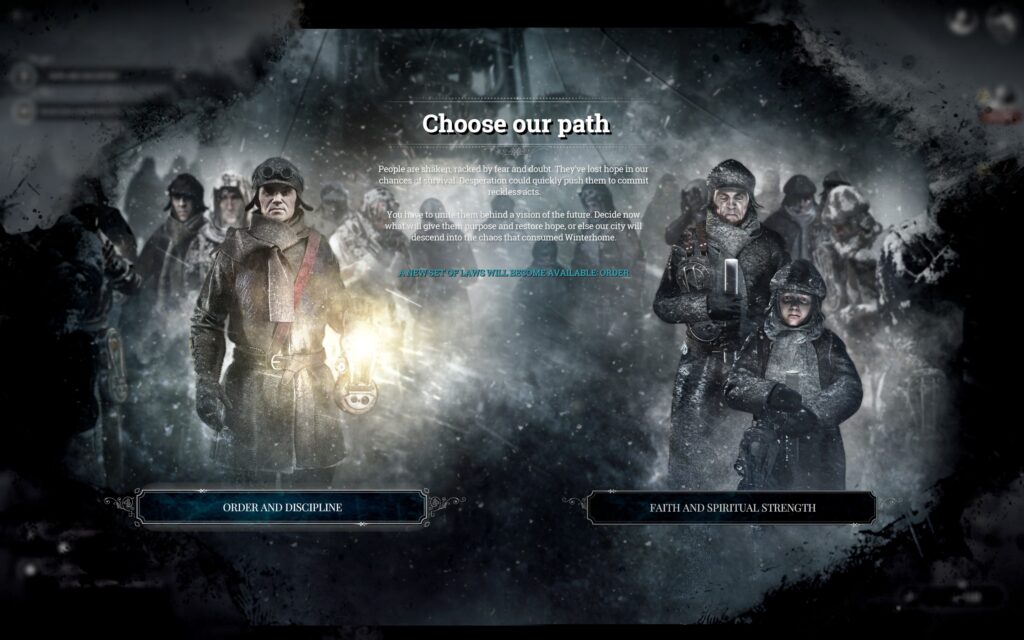
I have a fight on my hands now. I can do this.




